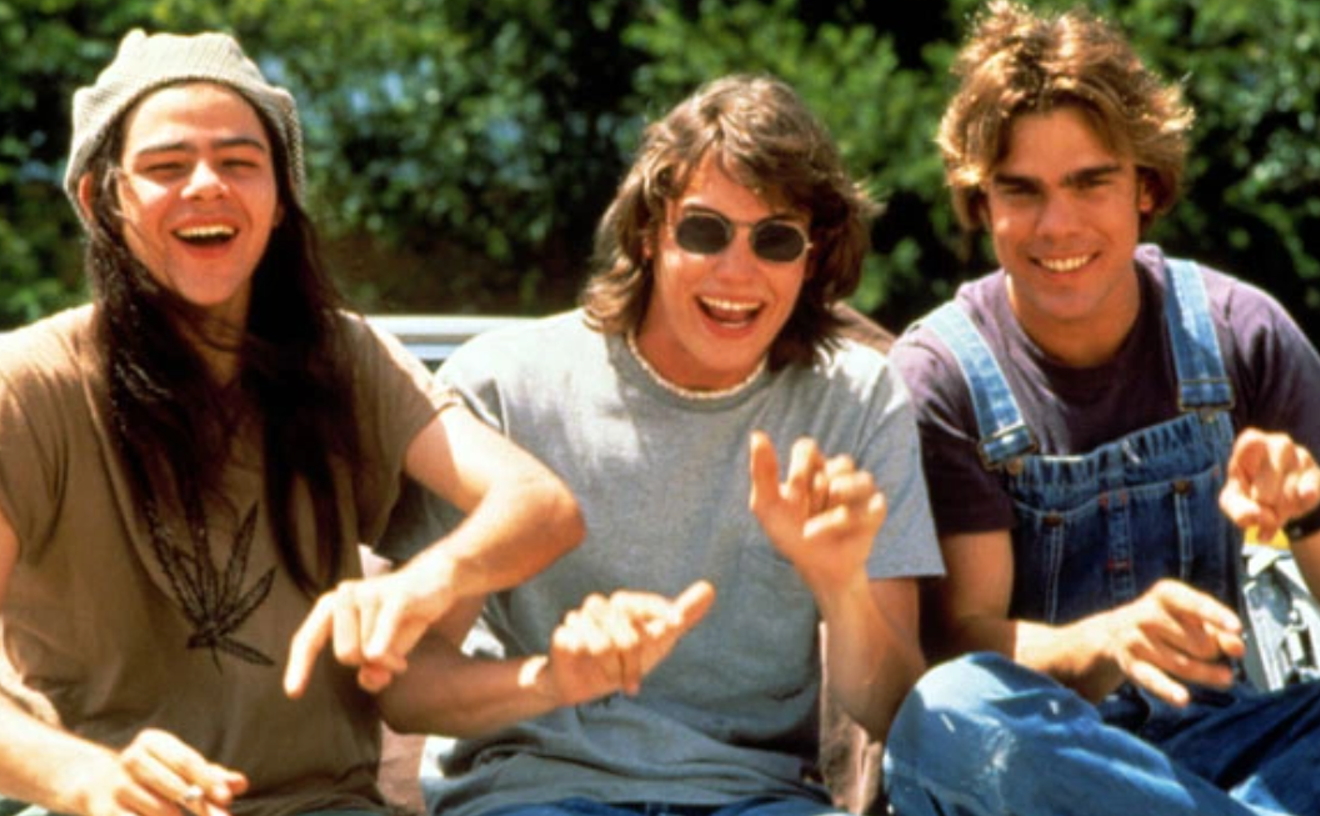The setup: Like Danny, the hero of his currently popular play The Submission, writer Jeff Talbott is a Yale Drama School grad who's finished a handful of full-length scripts that haven't really gone anywhere -- until now. (Talbott does have a festival reading of his newest work, A Public Education, scheduled at Salt Lake City's Pioneer Theatre Company this weekend if you happen to be there.) What's a great relief to audiences of normal people is that The Submission isn't really a navel-gazing story about a bunch of Ivy League-educated theater folk; it's about how far a person might go once he's taken the exit to Bad Idea Town because the needle's on empty.
When iTheatre Collaborative had trouble casting By the Way, Meet Vera Stark, the play it had announced for this slot in the 2013-14 season, they were able to get the rights to The Submission. Staged with support from iTheatre's frequent collaborative partner, ASU West's School of Humanities, Arts and Cultural Studies, the show is provocative, funny, troublesome, and a good fit for the troupe's mission of inclusive multiculturalism.
See also: Race: iTheatre Collaborative Makes the Most of David Mamet's Latest
The execution: You need to know that I saw this production on an evening when iTheatre artistic director Chris Haines was understudying Kyle Lambros, who plays one of the main roles. So although Haines is one of those veteran all-arounders who inspire confidence in their partners, do an awesome job, and make you forget they're a substitute, a) you probably won't see him in the part and b) I can't review Lambros' acting, because I didn't see it.
The play that Danny (Randy Rice) has written is about a black family in the projects, and somehow, despite his profound whiteness and lack of relevant experience with people anything like his characters, it's a good play, everyone agrees. (Writers -- go figure.) In a fit of insecure entitlement, he submits the script under a pseudonym that suggests he's a black woman.
Danny slides farther down the rabbit hole by recruiting a black actress, Emilie (Nicole Belit) to pretend to be him. In person. And when the play's accepted for production at Louisville's Humana Festival of New American Plays (a really big fucking deal), Emilie becomes a promising new voice of the black experience. At rehearsals. During notes. The level of communication required for this deceit leads to friendship and, not surprisingly, to people hurting each other something fierce.
Charles St. Clair's director's note talks about words a lot, and everything from the preshow music to the floor of the simple yet impressive set (co-designed by Haines and St. Clair) emphasizes language, the generation of which, in the form of Danny's script, is the catalyst for the events here. And one way of looking at The Submission is to see that, as a story of people, it's at its best when they are so passionately angry that they're flinging words at one another at a speed that exceeds their capacity to listen or think.
Certain words can't be ignored, though, whether it's the N-word that Emilie and the festival director suggest might not need to appear 30-something times in a single scene or the slurs referencing Danny's gayness that Emilie starts to casually throw in her quest for support, confident that her marginalization is realer than his. Their conflict is one they can't ignore, even though everyone but Danny knows from the get-go that this snowball is heading straight to hell.
If you're familiar with the perception => thought => emotion => action model of behavioral health, which is a helpful tool for theater artists as well, you know that speech is a form of action and that feelings, however instantaneous and uncontrollable they seem, are ultimately under one's own control. It's those underlying perceptions (part of what St. Clair refers to as "the inaudible language of the heart") that are the root of all good and evil in Talbott's story. Though everyone's views get challenged, it feels clear to me that if anyone takes a side after this slice of life has played out, Danny and his creator (who definitely seem to channel one another, at least when they talk about the creative process) know where they wind up -- and it's not where you might think.
The show doesn't specifically urge you to choose one position or another, though, or even to declare allegiance at all, which is kind of cool. By the time it's over, you might be almost afraid to talk about it. Yet the peril is balanced with inherent humor and tricky, intellectually appealing layers of significance.
And that's just the text. The production elements (except for some dim and syntactically confusing projections during scene changes) are beautifully supportive of this work, which is more affecting in its most lifelike moments. Many of those treats are provided by Belit, who's just a lovely, astute, engagingly natural performer, even when her character isn't being nice.
Rice, whose character describes himself as "very, very gay," occupies his stereotype with a commitment that made me uncomfortable not because I don't know or believe in swishy men (in fact, they do exist, are who they are, and deserve respect), but probably mostly because I know that, as in racially defined communities, there are divides and hierarchies in the gayverse as well. I was codependently wishing no one would be bothered by it, but, like many of the choices here, it's probably supposed to bother the people it bothers.
A little bit of my squick was acting-related: Being the poster child for anything is a fine, fine line to walk, and it felt to me as though Rice fell off a few times (though, curiously enough, not when his incognito moments in Louisville were inspired by Jackie O, complete with headscarf and big sunglasses. Nailed. It). But, honestly, he turns in believable, competent work, elevated to amazing if you factor in difficulty. (Which an audience should not be asked to do. Okay, at least not in the middle of the performance, when you ought to be transported.)
The verdict: Not unlike Teatro Bravo!'s current production, Clock, The Submission is a play that will mean something different to you depending which community(ies) you identify with. (Yes, that's true for all art, but it's actually a huge component of what each of these plays is literally about.) What I can safely say is that the creative team for The Submission has stepped up admirably and you'll be both entertained and, one way or another, altered by having witnessed it.
The Submission continues through Saturday, March 22, on the Kax Stage on the Van Buren Street side of Herberger Theater Center, 222 East Monroe Street. Admission is $20. Purchase tickets here or call 602-252-8497.











